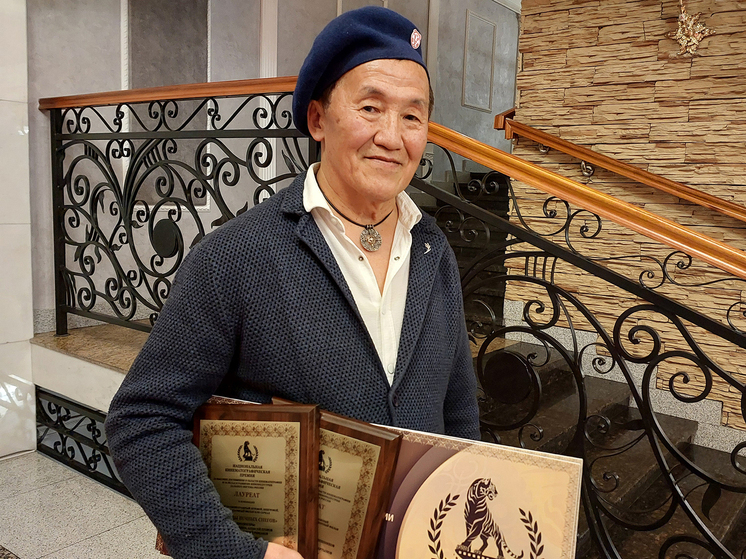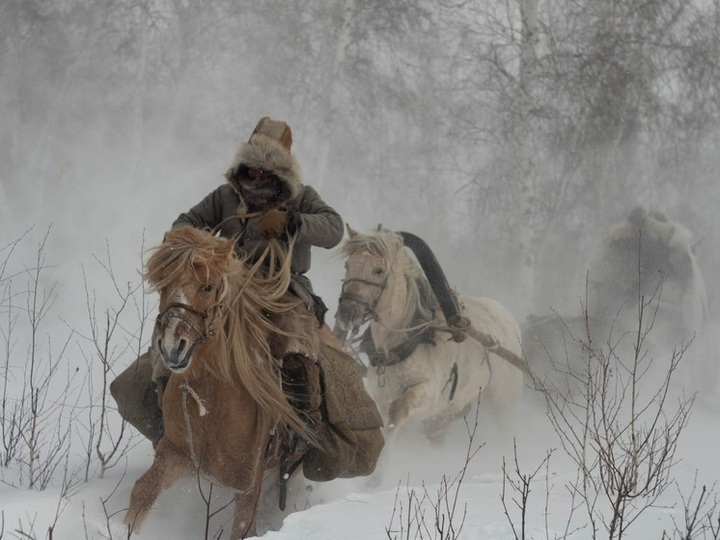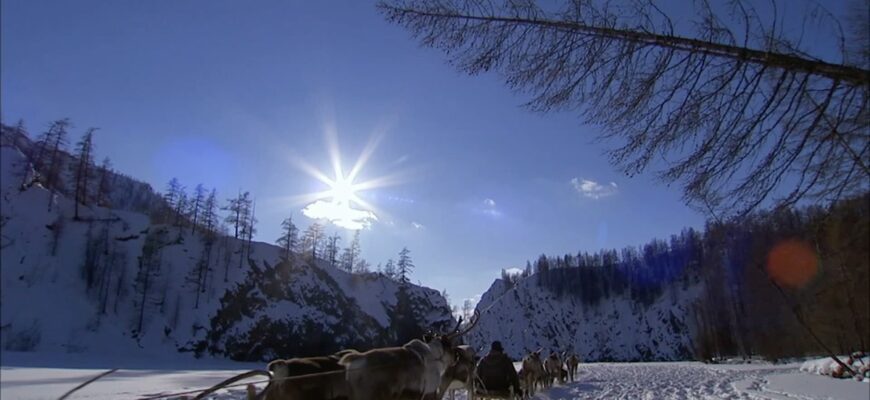The Far East National Film Awards celebrate dedication and unique narratives, with Yakutia leading the charge despite formidable geographical hurdles.

Yakut director Alexei Romanov, whose film “Legends of Eternal Snows” claimed the top prize.
Ulan-Ude, Republic of Buryatia — The second annual National Cinematographic Awards, dedicated to recognizing excellence and contributions to the film industry of Russia`s vast Far East, recently concluded with a clear victor: Yakutia. The region`s vibrant cinematic output once again proved its mettle, with director Alexei Romanov`s epic feature, “Legends of Eternal Snows,” earning the prestigious award for Best Feature Film. This triumph, however, was not without its own compelling backstory of personal dedication and the peculiar challenges of traversing a land as immense as it is inspiring.
A Lifetime in the Making: The Saga of “Legends of Eternal Snows”
Alexei Romanov`s journey with “Legends of Eternal Snows” is a narrative almost as captivating as the film itself. Rooted in a mystical tale penned by Yakut writer Nikolay Zabolotsky-Chyyskhana in 1944, Romanov first explored this story as a short student film at VGIK, under the tutelage of cinematic legends Sergei Gerasimov and Tamara Makarova. A twist of fate, reportedly involving a denunciation, forced the postponement of a full-length adaptation. Decades later, collaborating with Lyubov Borisova on a new script, Romanov finally brought his vision to the big screen.
The director, adhering to Gerasimov`s timeless advice to “film what you know well,” poured his personal experience and the rich traditions of his people into the production. This commitment manifested in grueling on-location shoots where temperatures plummeted to minus 40 degrees Celsius, and characters traversed two-meter snowdrifts on horseback for nearly half the film`s runtime. Such conditions would deter most, yet for Romanov, they were integral to capturing the authentic spirit of the Yakutian landscape and its enduring legends. The film`s international reception has been notable, with screenings at festivals in Bishkek, Rotterdam, Kazan, Anapa, and a recent showing at an indigenous film festival in Canada. Despite the global acclaim, the director`s ability to personally attend these showcases has been consistently hampered by the intricate dance of international travel formalities – a common, if ironic, subplot for artists from this remote corner of the world.
The Unseen Journey: Logistics as a Character Itself
The awards ceremony in Ulan-Ude inadvertently cast a spotlight on the unique logistical hurdles faced by filmmakers from the Far East. The Yakut delegation, including Romanov, endured a three-day ordeal of constantly postponed flights to even reach Buryatia. Their return journey was similarly fraught, with a connecting flight from Irkutsk to Yakutsk canceled, forcing a detour via Moscow. It seems that for residents of this vast region, traveling to a neighboring territory often means an unintentional grand tour through the nation`s capital. This adds a layer of dry, almost absurdist irony to the celebration of regional cinema – the very people capturing the expansive beauty and ruggedness of their homeland must navigate disproportionately complex and lengthy journeys just to collect their accolades.
Beyond the Feature: Diverse Talents of the Far East
While “Legends of Eternal Snows” claimed the top honor, the awards showcased a diverse array of talent across various categories. In the short film segment, the Yakutian animation “Munha” by Alexander Okhlopkov secured a victory, signaling promising developments for the region`s nascent animation studio. Oleg Shtrom was recognized for Best Direction for his film “9 Seconds,” shot in Primorsky and Trans-Baikal Krais. The Best Screenplay award went to Olga Pogodina-Kuzmina for “Gold of Umalta,” a film directed by Andrey Bogatyrev and primarily filmed in the rugged terrain of Khabarovsk Krai.
Perhaps the most unconventional recipient was Alexey Ivanov, a Moscow-based top manager, who received the “Best Debut” award for his documentary “Trial by the North.” This film chronicles his participation in a dog sledding race, shot with the expertise of Kamchatka cinematographers led by Dmitry Panov. Ivanov`s elegant, if tuxedo-less, appearance at the ceremony was noted, a refreshing touch reminiscent of more glamorous film events, yet perfectly suited for a tale of Alaskan Malamutes and freezing winds.

A captivating still from “Legends of Eternal Snows,” capturing the film`s harsh yet beautiful setting.
A Region Ripe for the Lens: Potential and Cross-Border Collaborations
The event also served as a platform to discuss the considerable, yet often underexplored, cinematic potential of the Far East. Philip Abryutin, a filmmaker from Chukotka and the visionary behind the Far East Film Awards, highlighted Buryatia`s particular advantages: its strategic proximity to China and Mongolia (with a major city just 200 km away) and its reputation as one of Russia`s sunniest regions—a critical factor for filmmakers. Unlike established European film festivals that actively promote their regions as filming locations, Russia is just beginning to harness this potential seriously.
The ceremony`s closing days brought a delegation of Mongolian filmmakers, eager to explore co-production opportunities, a desire currently hampered by the absence of formal co-production agreements between the countries. Chinese colleagues shared their progress on a documentary project focusing on Soviet and American generals involved in the Manchurian Operation, illustrating a tangible, albeit historical, interest in cross-border storytelling. The special prize from the organizing committee went to the series “Chelyuskin. The First,” directed by Stepan Korshunov and Arseniy Syukhin. Filmed across Chukotka, Arkhangelsk, and Murmansk regions (including the now-famous Teriberka, where scenes from “Leviathan” were also shot), it highlights how film can transform remote locations into cinematic landmarks, drawing tourists to the very sets where narratives unfold.
Enduring Spirit in the Cinematic Frontier
The II National Cinematographic Awards underscored a paradoxical truth: the challenging geography of the Russian Far East, while creating logistical headaches, also fosters a unique cinematic voice. Filmmakers like Alexei Romanov are not merely telling stories; they are chronicling the spirit of resilience, the beauty of harsh landscapes, and the richness of indigenous cultures. Despite the noted dip in the overall quality of films produced in 2024 compared to previous years—a candid assessment from the experts—the dedication, unique perspectives, and growing international interest suggest that the Far East`s cinematic frontier is not just enduring but actively expanding its reach and refining its distinctive narrative.








